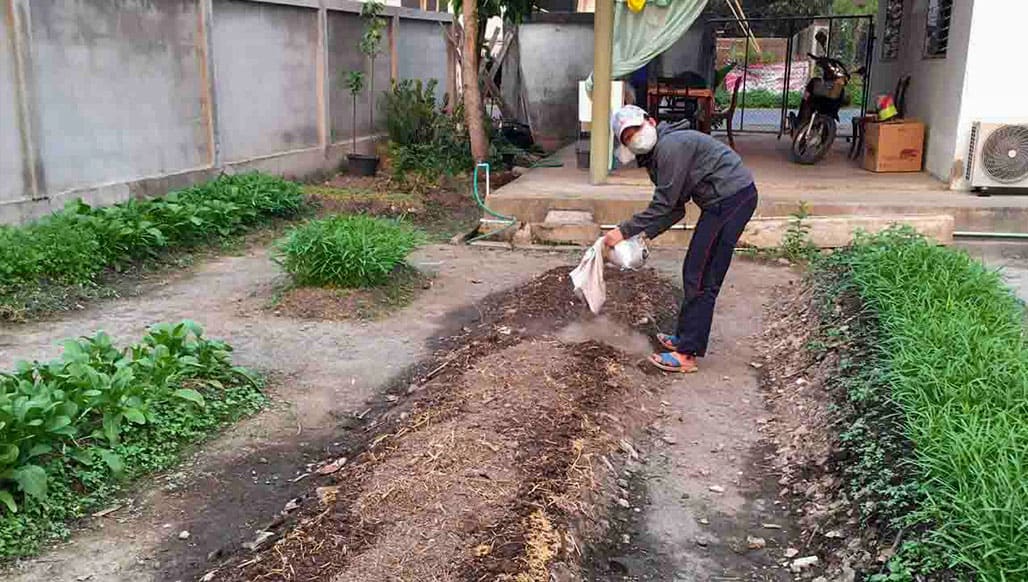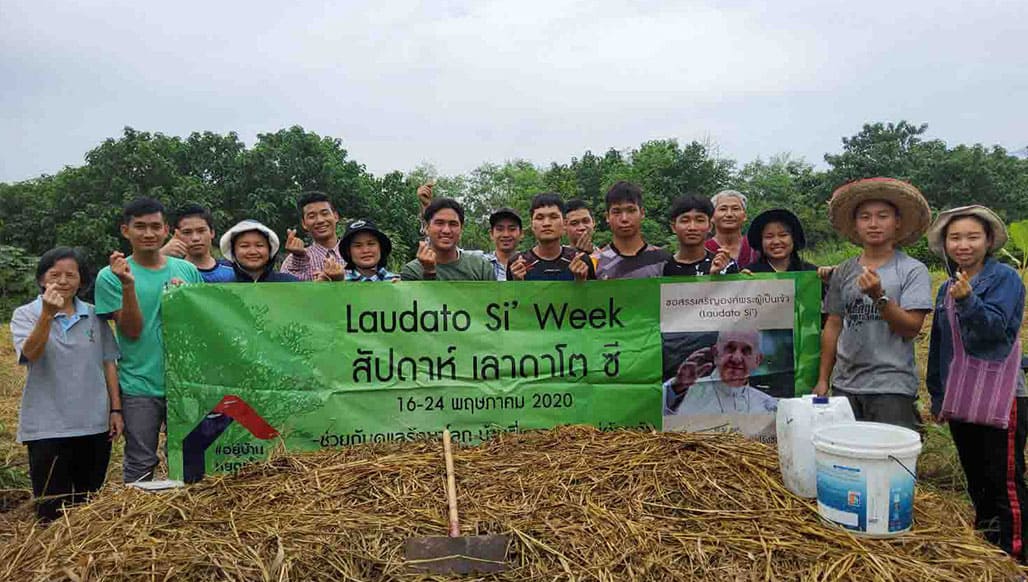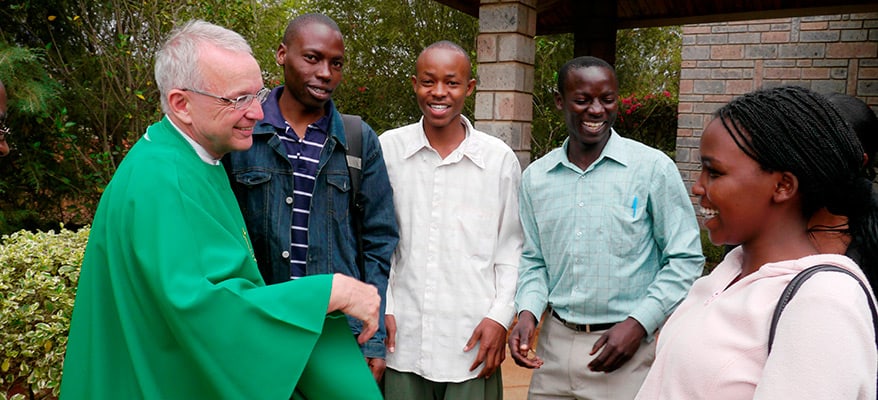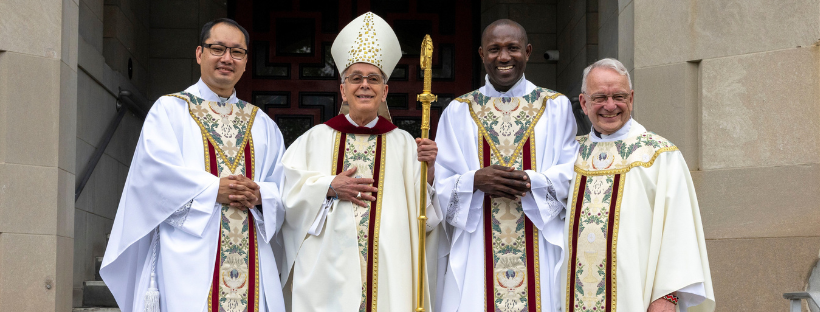EARTH WISDOM
“Worthy are you, Lord our God, to receive glory and honor and power, for you created all things; because of your will they came to be and were created.”
– Revelations 4:11
I am a scientist by training, an environmentalist by choice—and a missioner by God’s grace.
For the past ten years, I have been a visiting teacher at Thailand’s Research and Training Center for Religio-Cultural Community (RTRC). Founded by a Thai priest, the Center teaches indigenous communities to farm sustainably. Every year men and women from hill tribes come here for training. They return home with skills to protect the earth and ways to live in harmony with their environment. Our goal is to reduce the amount of waste and pesticides that infect our land and food supply. Just as important, we encourage the younger generation to remain on indigenous land rather than move away to find work. Giving people a reason to live in harmony with their environment helps insure a future for the land as well as native cultures at risk.
Climate change is as much a factor in farming here as it is in the States. Temperatures are hotter and rain is unpredictable. So our classes teach subsistence farmers how to adapt. We find crops suited for their environment, and we teach renewable practices that enrich the soil. Composting, for example, is critical in tropical climates like ours. It increases the soil’s carbon content, and creates a balance of water and air that supports beneficial microorganisms. In turn, enriched soil produces more nutritious crops.
When people see hope turn into reality, it changes them. After returning home from his RTRC training, one of our students became a youth leader. He decided to teach village children about the environment through music. In the beginning, some people thought he was crazy. But once they saw the results of his work—gaggles of excited kids joining neighborhood cleanups and more—they regarded their village in a new light. They wanted to preserve and protect it.
Our classes ask students to think about the big questions: Who are you? Who is your family? What is the meaning of village? Conversations like these help students see all their relationships—social religious, economic, and cultural— as integral with one another. They come to understand how our environment ties them back to their culture and the land.
Not long ago one of our RTRC teachers organized a “Laudato Sí Week,” inviting people to reflect on Pope Francis’ powerful encyclical on the environment. Afterwards villagers organized a blessing for their local rice field. They called the land a sacred space, encouraging the owner to stop using harmful chemicals—another example of bringing our faith into the field.
Each morning before starting my day, I thank God for your prayers and support. I am here because of you, helping people celebrate their deep cultural ties to the earth and the sacred space we call Creation. God bless you for taking this journey with me. You are making hope possible.
– Father Lawrence Radice, M.M.
A LEGACY OF LOVE & FAITH
MAKE A LASTING DIFFERENCE WITH YOUR BEQUEST.
A will ensures that your loved ones will be provided for in the future. By remembering Maryknoll Fathers and Brothers in your estate planning, you help to ensure that our mission of sharing the Gospel in solidarity with the poor globally continues.

By learning methods of farming that honor Creation and the earth, villagers are encouraged to remain on their land rather than move to the city for work. (Courtesy of Fr. Lawrence Radice, M.M.)

A group of Thai villagers celebrated Pope Francis’ encyclical on the environment, Laudate Sí, pledging to care for their land—and tribal custom—with sustainable farming. (Courtesy of Fr. Lawrence Radice, M.M.)



